Due diligence is a key aspect for boards, management teams and other stakeholders to evaluate potential merger and acquisition (M&A) transactions. Whilst many aspects of the due diligence process (such as financial, legal, commercial, etc.) are well defined, there is often no independent due diligence undertaken on the transaction value, although this is starting to change.
What is valuation due diligence?
 The price agreed in an M&A transaction is typically a negotiated outcome which may be informed by a range of factors in addition to views on value including vendor expectations, competitive tension and market sentiment. However, ensuring a well-defined process for determining and evaluating the price to be paid (or received) for M&A transactions in advance of completing a transaction is a critical part of the process that is frequently overlooked.
The price agreed in an M&A transaction is typically a negotiated outcome which may be informed by a range of factors in addition to views on value including vendor expectations, competitive tension and market sentiment. However, ensuring a well-defined process for determining and evaluating the price to be paid (or received) for M&A transactions in advance of completing a transaction is a critical part of the process that is frequently overlooked.
The level of analysis required in this process is dependent on the risk tolerance of the decision makers, materiality of the transaction and the extent that internal deal teams and/or advisers can provide a sufficiently independent view. In our experience, there is a wide spectrum of analysis that can be performed to inform decision-makers, including:
- Analysis of returns/multiple: Detailed analysis of implied multiples and/or returns for the transaction. This can be benchmarked against market multiples and discount rates and/or any internal hurdle rates.
- Independent valuation: Valuation of the target company based on information available (typically an information memorandum, access to a data room, etc). This can include analysis of potential synergies, tax benefits and other aspects which may impact transaction pricing, earnings accretion, etc.
- Pre-bid purchase price allocation: the value of tangible and intangible assets usually need to be reset as part of the transaction process. When material, it is often desirable to estimate the impact of acquisition accounting prior to completion to understand any potential tax step up benefits, earnings per share impacts and/or future impairment testing implications.
What are the benefits of independent valuation due diligence?
Ensuring a robust and well-documented analysis of the pricing for M&A transactions is a critical part of the due diligence process and can provide the following benefits:
- Achieve a better understanding of what you are (and are not) paying for in terms of future growth, synergies, tax benefits, etc.
- Independent analysis to ensure:
- A third-party perspective from deal team or advisers who may have incentives to do the deal.
- That time constraints or those very close to the project don’t unduly influence the decision.
- Provide enhanced decision support and risk management framework for the board and management.
- Ensure the approach adopted for determining the price is consistent with any subsequent revaluations (i.e. for fair value investments, impairment testing, etc.)
Due diligence on the value of your M&A transaction can provide benefits to all stakeholders including:
- Management teams to demonstrate a considered view on transaction pricing and associated risks prior to seeking board approval.
- Board of directors and investment committee to assist in discharging governance duties and inform the transaction evaluation process.
- Internal deal teams and/or advisers as a ‘second pair of eyes’ for large and/or complex transactions or when resource constrained.
- Trustees (and their advisers) for investment funds with exposure to unlisted assets to ensure the price being paid is reasonable and to ensure consistency with future revaluations of the investment.
Case studies
 Case study 1: Independent valuation advice was requested for an ASX 50 client’s investment committee to evaluate the proposed price to be paid for an early stage renewable energy business.
Case study 1: Independent valuation advice was requested for an ASX 50 client’s investment committee to evaluate the proposed price to be paid for an early stage renewable energy business.
How did Leadenhall add value to the process?
- Provided independent view of value of a complex asset which was required by the investment committee prior to approving the investment
- Considered impact of a range of different scenarios in respect of market size/share/revenue growth, etc
- Significant special value available to the purchaser which we could clearly articulate was not being included in the proposed price to be paid.
- We provided a reasoned conclusion in a short time period which enabled investment committee review prior to timeline for final bids. Our client was successful in their bid.
 Case study 2: Independent valuation advice requested to assist a large multi-national funds management client in assessing whether to participate in a capital raising for an unlisted investee infrastructure company. The investee company engaged an international accounting firm to provide advice on the appropriate capital raising price
Case study 2: Independent valuation advice requested to assist a large multi-national funds management client in assessing whether to participate in a capital raising for an unlisted investee infrastructure company. The investee company engaged an international accounting firm to provide advice on the appropriate capital raising price
How did Leadenhall add value to the process?
- The business was complex and new material information became available throughout the process. We were able to quickly update our analysis and conclusions and provide timely information to our client throughout the process.
- Our valuation analysis indicated that the capital raising price being proposed was not reasonable (i.e. too high) based on our view on the intrinsic value of a share.
- Our client decided to not participate in the capital raising and the company therefore decided to pursue a trade sale for the company instead as they could not agree on the pricing for the transaction. Offers subsequently received in the sales process were substantially less than the proposed capital raising price and in line with our assessed value range.
 Case study 3: Independent valuation advice requested for board of unlisted healthcare company to assist in discussions with potential acquirers of the business.
Case study 3: Independent valuation advice requested for board of unlisted healthcare company to assist in discussions with potential acquirers of the business.
How did Leadenhall add value to the process?
- Our valuation considered the value of the business under a range of scenarios including likely buyer synergies and the potential value uplift for a new MRI license which was expected to be received in the near term. Our valuation analysis enabled the client and sell-side advisers to better articulate to potential buyers why prospective earnings/cash flows should be used to determine price rather than historical earnings.
- Offer received at the high-end of our valuation range.
 Case study 4: Independent valuation advice requested for an ASX listed fund manager to assist the board in assessing the price to pay for a US funds management business.
Case study 4: Independent valuation advice requested for an ASX listed fund manager to assist the board in assessing the price to pay for a US funds management business.
How did Leadenhall add value to the process?
- Provided independent view of value for a complex asset which was required by the board of this listed company.
- Prepared an indicative purchase price allocation to allow management to analyse the potential tax and accounting amortisation implications of the transaction, particularly EPS.
- Allowed senior team members to focus on other aspects of the transaction at a time when the internal deal team was resource constrained.
- The board approved the price to be offered and the client subsequently was successful with the acquisition.
Questions
For a confidential discussion about your unique situation or needs, please contact us.





